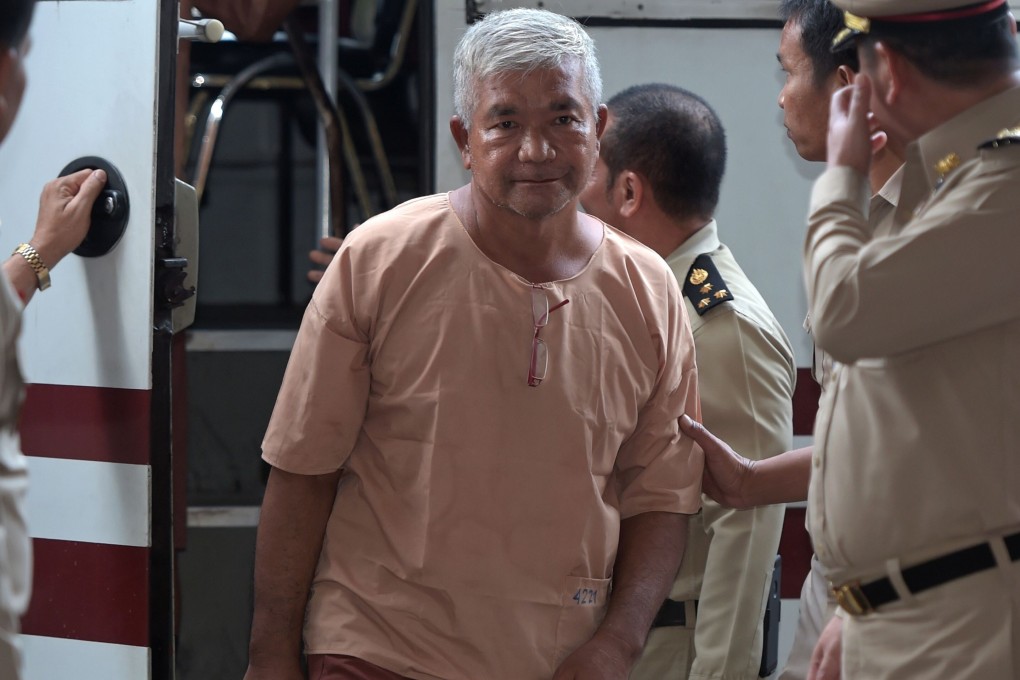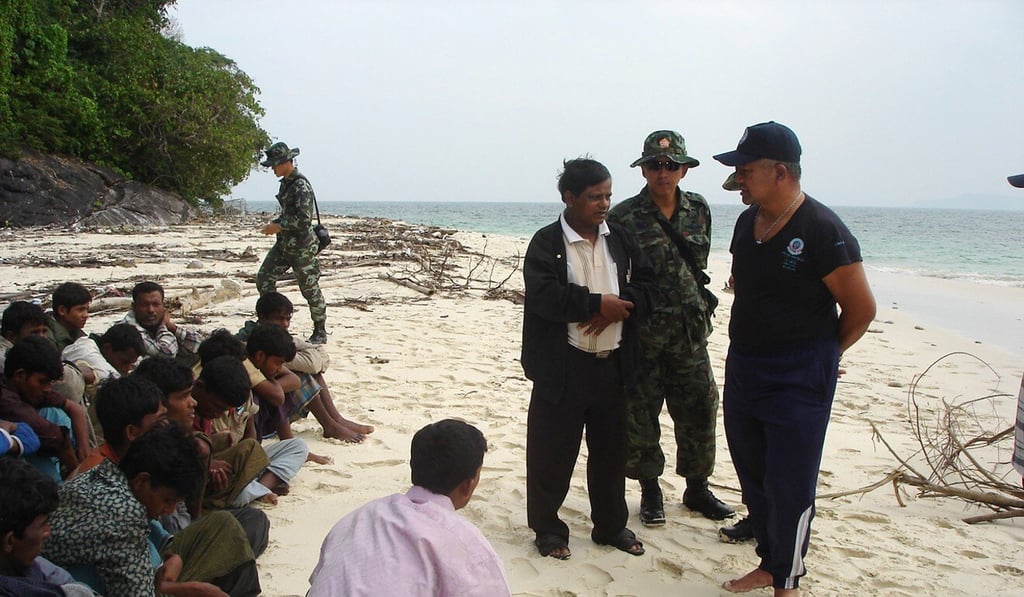Thai general Manus Kongpan, jailed for trafficking Rohingya refugees, dies in prison
- Manus was given an 82-year sentence following Thailand’s largest-ever human smuggling investigation
- The court case was sparked by the discovery in 2015 of the bodies of at least 30 refugees in mass graves

The scale of the atrocity and the corresponding public scrutiny prompted the Thai authorities to open the country’s largest-ever investigation into a human smuggling ring. Within weeks, Manus – at the time a senior adviser to the Thai military – was named a suspect. His initial 27-year sentence was later increased to 82 years upon appeal.
During his time in the army, Manus – who died of a heart attack on Wednesday – was attached to the Internal Security Operations Command, and was responsible for border control and the expulsion of illegal immigrants.

The report revealed that 538 Rohingya were dead or missing after the Thai army cast adrift nearly 1,000 refugees aboard unpowered boats in December 2008. Survivors on India’s Andaman and Nicobar Islands told the authorities there of starvation, brutality and summary executions.
Manus at the time denied that the army was detaining Rohingya and refused to discuss the matter, according to the report. A video obtained by the Post shows the refugees crouching in the sand, visibly terrified as soldiers in fatigues and officials in civilian clothing interviewed and filmed them.